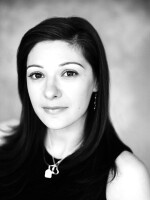ANDREA SEABROOK, host:
And now to Iraq.
Christians in one of Baghdad's most hotly contested neighborhoods cautiously ventured out today to attend services for the first Sunday of Advent. There used to be around 800,000 Chaldean Christians in Iraq; now there are few left.
NPR's Jamie Tarabay has our report.
(Soundbite of Christian service)
JAMIE TARABAY: It was a sound now unfamiliar to the newly dusted pews inside the Chaldean Church of St. John the Baptist, voices reciting the Lord's Prayer.
This is only the second week in nearly a year the church has been open for prayer here in Doris, south of Baghdad. Parishioners are few, mostly elderly women found with veils on their heads.
(Soundbite of Christian service)
TARABAY: The voices echo in the near empty room. Written across the archway over the altar are words from the Gospel describing John the Baptist. A voice cries out in the wilderness prepare the way of the Lord.
This church has lost its leading voice, the parish priest fled Baghdad a year ago to Syria and has now sought asylum in Sweden. The man giving mass now is Daniel Shamash(ph).
Mr. DANIEL SHAMASH: (Through translator) Before now there were all Christians, no Muslims at all. Now there are maybe nine families left. Before, there were 200.
TARABAY: The day before the service, Shamash sat in his living room and talked about how this little pocket of Baghdad went from being almost completely Christian to almost completely Sunni-Muslim. Al-Qaida and Iraq fighters moved in, he said, ostensibly to side with the Sunnis, fighting Shiite militias for territory, but soon turned their attention towards the Christians and their churches.
Mr. SHAMASH: (Through translator) There were a lot of them who were told to either to pay or to become Muslim. Some gave money, some ran away. People who went to Syria weren't even allowed to pack their clothes with them.
TARABAY: The Islamist extremists posted fliers forbidding women to leave their homes without covering their hair. It soon became a threat of death if women didn't wear the all-encompassing black abaya.
Smeared graffiti marks the walls outside St. John's Church and along Shamasta(ph) Street. Still visible are the words Tawhid and Jihad, an al-Qaeda group, as well as promises of death to the disobedient.
Mr. SHAMAS: (Through translator) It's getting better. It's 75 percent better than it used to be. Before, we'd all be inside our homes by 1 p.m.
TARABAY: American forces began operations in September to first separate Sunni and Shiite militias into different parts of Dora. A local volunteer police force, mostly Sunni, now works in cooperation with Iraqi army and U.S. forces. They man checkpoints and entrances near the churches and Dora's famous market.
One of the volunteer leaders is Fakur Shalal(ph),a retired colonel of the former regime. Standing inside St. John's, he said it was important to Dora's Muslims that the Christians return.
Mr. FAKUR SHALAL (Volunteer Leader): (Through translator) We want to present the right face for the world, to show that we care about other religions because those who try to get rid of the Christians are not real Muslims.
TARABAY: Asi Putros(ph), the church's caretaker, said clerics in four of Dora's mosques publicly condemned the harassment of the Christians to show it wasn't being supported by the local Muslims.
As today's service ended, people handed out sweets. A Muslim woman, who attended the service with her Christian female friend, gave out chocolates, saying all religions were the same under heaven.
Aphrim Pama(ph), she says she was born in Dora, said she hoped her neighbors who fled would now come back.
Ms. APHRIM TANA: (Through translator) Now, we feel like Christians again. After all these years, we finally entered the house of the Lord again.
TARABAY: She said she hopes the American soldiers standing nearby, stay for a long time, too.
Jamie Tarabay, NPR News, Baghdad. Transcript provided by NPR, Copyright NPR.






